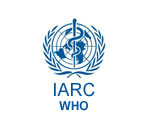
The following communicate has been released by the International Agency for Research on Cancer – IARC this morning.
Lyon, France, 23 October 2015 – A new study conducted by researchers from the International Agency for Research on Cancer (IARC), in partnership with the United States National Cancer Institute (NCI) and the Centers for Disease Control and Prevention (CDC), shows that in the USA, the proportion of cancers attributable to infections is ten times as high in HIV-positive people as in the general population. The study is published today in the journal AIDS.[1]
The study’s authors used HIV and cancer registry data from 1996–2010 to estimate the number of cancer cases attributable to infections. Of the estimated 6200 cancer cases that occurred in 2008 among HIV-positive people in the USA, 2500 were caused by infections.
“About 40% of cancers in HIV-positive people were caused by infections, compared with only 4% in the general population. This proportion is higher than in the general population of any world region, including sub-Saharan Africa, where 33% of cancers are attributable to infection,” says IARC researcher Dr Martyn Plummer, who led the study. “The comparison between populations is striking. Although infection-related cancers are well controlled in the general population, they are clearly a growing concern among HIV-positive people.”
The study also shows that HIV-positive people are affected by specific types of infection-associated cancers. In the general population in the USA, the main cancers of infectious origin are stomach, liver, and cervical cancers.
In HIV-positive people, the main infection-associated cancers are Kaposi sarcoma due to Kaposi sarcoma-associated herpesvirus (KSHV), lymphoma due to Epstein–Barr virus (EBV), and anal cancer due to human papillomavirus (HPV). Among HIV-positive women, HPV is responsible for half of all infection-attributable cancers.
Kaposi sarcoma, which is associated with strong immune suppression, accounted for nearly a third of infection-attributable cancers in HIV-positive people. “The high incidence of Kaposi sarcoma, despite the availability of combined antiretroviral treatment (cART) since the mid-1990s, suggests that many cases are occurring among people who are unaware of their HIV status or not on appropriate HIV treatment,” says IARC researcher Dr Catherine de Martel, the first author of the study.
“As the life expectancy of HIV-positive people increases, cancer is becoming an increasingly relevant health concern,” says IARC Director Dr Christopher Wild. “Early detection and treatment of HIV infection are critical to prevent infection-related cancers while awareness of cancer risks among HIV-positive people will help ensure timely access to diagnosis and treatment.”
For more information, please contact Véronique Terrasse, Communications Group, at +33 (0)4 72 73 83 66 or terrassev@iarc.fr or Dr Nicolas Gaudin, IARC Communications, at com@iarc.fr.
The International Agency for Research on Cancer (IARC) is part of the World Health Organization. Its mission is to coordinate and conduct research on the causes of human cancer and the mechanisms of carcinogenesis, and to develop scientific strategies for cancer control. The Agency is involved in both epidemiological and laboratory research and disseminates scientific information through publications, meetings, courses, and fellowships. If you wish your name to be removed from our press release emailing list, please write to com@iarc.fr.
——————————————————————————–
[1] De Martel C, Shiels MS, Franceschi S, Simard EP, Vignat J, Hall HI, Engels EA, Plummer M (2015). Cancers attributable to infections among adults with HIV in the United States. AIDS. 29(16): 2173–2181.
SOURCE: IARC Press Release 239
Franco Buonaguro
Latest posts by Franco Buonaguro (see all)
- Red de Institutos Nacionales de Cancer de Latinoamérica RINC-ALC - 26th June 2019
- Pioneers in Infectious Agents and Cancer Meeting - 2nd March 2017
- IARC 50th Anniversary Meeting 2016 - 13th June 2016
Comments